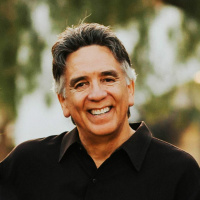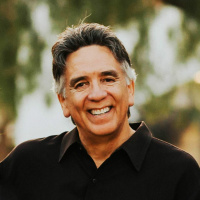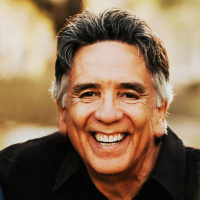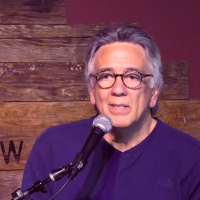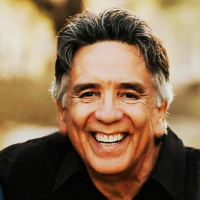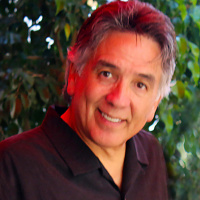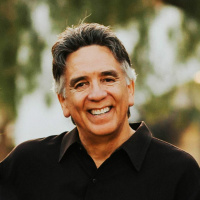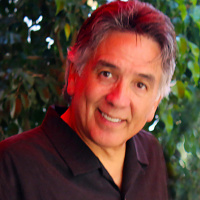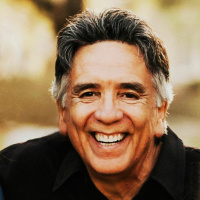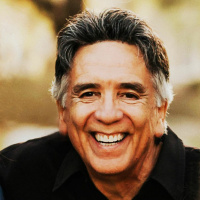David Brisbin Podcast
- Autor: Vários
- Narrador: Vários
- Editora: Podcast
- Duração: 340:11:47
- Mais informações
Informações:
Sinopse
Audio podcasts delivered at theeffect church in San Clemente, CA. theeffect is a community of imperfect people working together to find the emotional recovery and spiritual transformation that is theeffect of Gods love by unlearning limiting perceptions, beliefs, and compulsions, and engaging a first century Jesus in a non-religious and transforming way. See more at theeffect.org.
Episódios
-
Finding Father's Face
16/06/2024 Duração: 47minDave Brisbin 6.16.24 Years ago, I remember thinking that if I could just have one burning bush moment, that would be enough. Talking with God like a friend, face to face as Moses did, would answer everything. Yet that wasn’t enough for Moses. He begs to see God’s glory, just as Jacob asks for God’s name and Philip asks Jesus to show him the Father. But such requests are always denied in scripture and in life. Is God just being coy? Whether looking into the smallest or largest of things, the closer we look at our universe, the more it seems to be revealing the nature of its creator. We all learned about electrons orbiting the nuclei of atoms like planets around the sun. But electrons actually resemble a cloud, a cloud of probability. An electron doesn’t orbit a nucleus at all…it surrounds it like a fog with only a probability of being here more than there. It has energy and momentum, but doesn’t move. The cloud is completely still. We know exactly where the cloud is, but the electron has no specific location
-
Falling To Heaven
09/06/2024 Duração: 42minDave Brisbin 6.9.24 Everybody wants to go to heaven, but nobody wants to die. Yeah, that’s a country song, but Joe Louis, the great boxer, said it first. Death is the moment everything we can think of as ourselves, our entire sense of self, falls away. It’s the moment our minds stop thinking, stop imagining ourselves as individuals, separate from everyone and everything else. The irony is, we never feel better, more connected, loved, grateful, meaningful, fulfilled than moments when we lose our sense of self—whether in meditation, prayer, or an intense, peak moment, like falling in love. When our sense of self falls away, the anxiety of aloneness falls with it. And yet, that falling away of self is exactly what we fear in death, because we can’t imagine who we’d be when we can no longer think of who we are. Heaven is the state of absolute connection, but we must die to get there---die to our sense of self. The mind is the sole repository of ourselves-as-separate, so as long as we’re in our right minds, we
-
Clinging Not
02/06/2024 Duração: 48minDave Brisbin 6.2.24 One of the most cinematic scenes in the gospels is at John 20 where Mary Magdalene is sobbing by the empty tomb, and the risen Jesus asks why she is weeping. She whirls to confront the voice but not until he calls her name does she recognize. She calls out to him, and Jesus immediately replies, stop clinging to me. We don’t need to be told that she runs to him, falls down sobbing and clasping his feet in the ancient eastern custom. Our minds connect those dots. We see it all on our inner screens. Why would Jesus break off such a human response? Under the circumstances, to say it’s a cold reply is a world-class understatement. But like any good film, nothing is presented in the gospels without purpose—the real estate is far too precious. Jesus is hammering that though his love for Mary hasn’t changed, the nature of their relationship is now radically different. Just as Moses couldn’t enter the promised land because the people had begun relying on him rather than God, Jesus told his friends
-
Release And Catch
26/05/2024 Duração: 45minDave Brisbin 5.26.24 Carl Jung said that the first half of life is dedicated to forming a healthy ego; second half is going inward and letting go of it. We spend our first half looking for meaning, purpose, identity through accomplishment and acquisition—outward performances that mean less and less over time. We enter our second half when we realize that true meaning comes from a completely different direction. Jesus said that kingdom, his shorthand for second half spirituality, will never be found out there somewhere. It’s already within us. Authentic spirituality isn’t acquired. It’s relinquished. All the meaning and purpose we can stand is already within us, along with our true identities. It’s like ground water, deep and inexhaustible, always there, but not at the surface. You dig your well through layers of accrued illusions and patterns of thought and behavior. When Jesus says no one can follow him who doesn’t give up all they have; when he tells of men who find treasure in a field or at the market a
-
The Whole In The Part
19/05/2024 Duração: 43minDave Brisbin 5.19.24 So easy to lose the forest in the trees. Especially with scripture. We dig deep into the weeds of each verse, pull it apart, imagine meaning that may not have anything to do with the larger passage or chapter, let alone the whole book. A famous writer says unless you can describe the whole of your book in one sentence, you won’t write convincingly. You’ll meander, each part not contributing to the whole. The bible is actually sixty-six books, an anthology. Even harder to pull back enough to see a single line capturing its meaning—each verse revealing more of the whole. I’ve heard said that the bible is a love letter from God. A bit overly simplistic and sentimental for me, but on the right track. Maybe this: the bible traces the nature, development, and realization of our relationship with God. And if God is love, and love is identification with the beloved, then what we’re realizing is the oneness at the core of all our relationships. The gospels are all about this oneness. Jesus is on
-
Both Sides Now
12/05/2024 Duração: 50minDave Brisbin 5.12.24 It’s heartbreaking that many women in the second halves of their lives would be expressing remorse, but after dedicating their first halves to child and home, they find no concrete way to calculate the value of their life’s work. No degrees or trophies, certainly no pensions or even social security payouts. Our society doesn’t reward the most important contributions we make to our children and each other, those made from the traditionally feminine traits of acceptance, compassion, vulnerability. We’re all over the traditionally masculine ones—performance, accomplishment, acquisition—and though our churches may praise vulnerability and acceptance, they still reward the performers, male or female. All institutions do. Performers make the material world go round. Church is where we should be balancing the material and spiritual, masculine and feminine…especially when it comes to our notion of God. Yet God is almost exclusively portrayed as Father, with the implication of maleness, emphasi
-
Savior Complex
05/05/2024 Duração: 38minDave Brisbin 5.5.24 Do we ever change another person? Save them? Sometimes people thank me or our community for saving them, placing them on a lifesaving path. It’s wonderful to be recognized as part of their journey, and I thank them, but if the conversation goes on long enough, I’ll remind that when the student is ready, the teacher appears. That if they changed directions, it was because they were ready to change, and I was the millionth guy over their bridge, winning the prize of being present when the miracle occurred. They were a change waiting to happen, and if I hadn’t shown up, someone else would have. This is not an attempt at false humility, but the realization that being saved is not the passive waiting for a savior, but the willingness to participate in the saving change our lives require. Important distinction for both saviors and save-ees. Must be careful about developing savior complexes. We can help people, help change circumstances, but all we can provide is support and information—no ch
-
Judging Not
27/04/2024 Duração: 44minDave Brisbin 4.28.24 When Jesus says do not judge so you won’t be judged, that your way of judging will be used on you, we modern Westerners hear that in predictable ways. First, we think of judging in the sense of condemning or criticizing others, and we think of it punitively—that if we do wrong (judge), someone (God) will wrong us back as punishment. We also imagine our punishment happening sometime in the future, most likely after death. But thinking like this misses the essential point Jesus is making. The reality we believe is the reality we endure. Understanding that we live in a thought-world of our own creation is key to a life of meaning, purpose, and sense of identity. Unconscious beliefs programmed into us from earliest childhood form the way we think, our “judgment” of reality. As Jesus says, if our “eye” (way of seeing in Aramaic) is clear (not coloring reality) then we are full of light (harmony and clarity) but if not, we are “judged” by our own way of seeing. It all happens simultaneously.
-
Transparent World
21/04/2024 Duração: 49minDave Brisbin 4.21.24 When Thomas Merton gave a final address to his monastic community before retiring to a hermitage in 1965, he was famous worldwide for his spiritual writings. His speech was recorded on audio tape, and I ran across a short clip in which he was talking about the fact that we are living in a world that is absolutely transparent, that God is always shining through. God is in everything and everyone, every event, and it’s impossible to be without God. Ever. We don’t see this fact because we make the world opaque by becoming attached to, preoccupied with things we regard as individual objects—analyzing them as if unwrapping packages, layers of opaque paper, all while missing the larger transparent world. We get to bottom of the pile of paper, only to find nothing there; we were only unwrapping our own thoughts about something, not the thing itself. It’s not until we loosen our grip and lose ourselves in the experience of something that we can stop thinking of it as a thing in isolation and see
-
Our Turn
14/04/2024 Duração: 52minDave Brisbin 4.14.24 What would you say is the most damaging personal attitude to life in general and spirituality in particular? Fear, anger, hatred? What about passivity…and its close cousin, victimhood. Passivity is sneaky, because it isn’t immediately discernable as a vice, but the lack of will to respond actively, proactively, even to resist when that is necessary, keeps us from participating in life at all. Anger or hatred, if it’s active, is less harmful than passivity to a person’s return to life. For someone who sees themselves as a victim, passivity is the norm. A victim isn’t just someone who was hurt, but someone who had no choice in the matter. Choice is key. Once choice returns, so does personal responsibility. How many of us hang on to victimhood as a way of absolving ourselves from the responsibility to change, heal, grow. Not consciously, maybe, but just as effectively passive. The church has taught us a largely passive way of spiritual life. Unquestioning obedience to law and doctrine is p
-
Why We Count
07/04/2024 Duração: 46minDave Brisbin 4.7.24 We just finished counting the forty days of Lent that ended with Easter, only to begin counting again, this time to 49 plus one that will take us to Pentecost. Each counting is a time of preparation, but for what? Easter celebrates the resurrection of Jesus, and Pentecost the moment his followers engaged the full weight of spirit, but these were superimposed on the Hebrew celebrations of Pesach and Shavu’ot. Originally agricultural festivals, the people would ritually count seven weeks of seven between Pesach at the spring barley harvest and Shavu’ot at the summer wheat harvest. Over time, simple timekeeping between harvests—seven, the number of spiritual perfection, times seven—became the perfect time of preparation between Pesach/Passover, the physical liberation of the people from slavery, and Shavu’ot, the giving of the Law, a new relationship with God and the spiritual liberation of the people. We are now in this count, the time of preparation between Easter, physical liberation fro
-
Life In Motion
31/03/2024 Duração: 22minDave Brisbin 3.31.24 Easter Sunday Ever wonder why the resurrection accounts in the gospels are written the way they are? We crave details and explanations for the event itself, but the gospels are uninterested in satisfying our obsession with certainty. The central event takes place offstage, and the story picks up after it happens, following Jesus’ friends, their reactions and choices. The gospels are focused on the effect of the resurrection on Jesus’ first followers, not on the resurrection itself. This is a huge distinction that shows us where to look…not at the miracle, but at how the miracle affects our lives. It’s fascinating that no one recognized the risen Jesus at first sight. We wonder if Jesus looked different or whether he was miraculously hiding himself for some reason, but the truth is that the followers’ minds, like any human mind, were not yet prepared to see what they considered impossible. The gospels are telling us that seeing the risen Jesus is more process than event, a process of be
-
Jesus Saves
24/03/2024 Duração: 50minDave Brisbin 3.24.24 Western Christianity has largely failed us in its primary responsibility: to preserve Jesus and his teaching and help us engage. Focused on law and punishment to the point of legalism; ritual to the point of superstition; scarcity to the point of passive petition; outcome to the point of dismissed herenow, an authentic Jesus and his message have been left behind. One little passage sums it up. “The eye is the lamp of the body. If your eye is clear, your whole body will be full of light. But if your eye is bad, your whole body will be full of darkness.” Lest we take the English too literally, in Aramaic, eye/aina means a person’s entire way of seeing, their worldview. Clear/p’shitta is clear in the sense of simple and sincere. Light/nuhrah is illumination, intelligence, order. Bad/bisha means unripe, immature, not fully formed. And darkness/heshuka is chaos, disharmony. Jesus’ whole ministry was to show us how we can sincerely allow the order and clarity of ultimate reality penetrate the
-
Feeling God's Pleasure
17/03/2024 Duração: 47minDave Brisbin 3.17.24 What do humans look like when they break through their own thought-created worlds—all about survival, controlling competition—and become present to the real world around them? I remembered the movie Chariots of Fire, based on a true story set around the Paris Olympics, 1924. It contrasts two runners, a British Jew, Harold Abrahams, and a Scottish Christian, Eric Liddel. Abrahams has been embittered by the prejudice he’s suffered as a Jew, and runs for revenge, driven to win and prove superiority over those who despised him. Liddel, China-born to missionary parents, has been preparing to return to the mission field even as he gained stardom in rugby. His sister, Jenny, just as driven as Abrahams in her religious zeal, is dismissive and critical of his athletics; they distract from God. Liddel tells Jenny, “I believe God made me for a purpose, for China…but he also made me fast…and when I run, I feel his pleasure. To give it up would be to hold him in contempt.” Abrahams runs for revenge
-
When Down Is Up
10/03/2024 Duração: 51minDave Brisbin 3.10.24 The reality we believe is the reality we endure. We don’t see reality as it is. We see reality as we are. Our minds are a necessary tool for survival, but keyed to survival, they are fear-based, making our thoughts overwhelmingly negative as they literally create the world in which we live. As long as we’re thinking, we’re enduring a world we believe we must control to survive. We’ll need our minds as long as we’re drawing breath, but our mistake is to take them literally. To believe our thoughts are true is to live in the anxiety of our own personal hell. Jesus is acutely aware of the grip our minds have over us, that our minds can’t tell the difference between the thoughts it generates and sensory input coming from the outside. Always trying to engineer breaks in our stream of thought to allow something really real to break in, he never answers a question except with another question, a story or parable. He knows an “answer,” received as part of the mind’s drive to control the fear of
-
Tables And Trees
03/03/2024 Duração: 49minDave Brisbin 3.3.24 Decades ago, I met a Christian who converted to Judaism, eventually becoming a first century Jewish follower of Jesus. He spoke of his personal theology, a stated set of personal beliefs. I’d never considered such a thing. Growing up Catholic, theology belonged to the church, as if God had written it, and the church discovered it, parceling it out each Sunday. Unquestionably true, the idea of a personal theology was blasphemous. We had no permission to think personally. Yet here’s Jesus overturning tables in the temple and cursing a fig tree for having no fruit. Both stories pointing to the fact that the Jewish system of his day had become bankrupt, fruitless, unable to guide its people to authentic spiritual encounter. Jesus gave himself permission to explore his own beliefs, lived and taught out of that conviction, exposing the defects of his tradition. And where did that tradition come from? If you roll back any religion to its inception, you get to one person. A person who had life ch
-
Listening To Rocks
25/02/2024 Duração: 01h05sDave Brisbin 2.25.24 When Jesus rolls into Jerusalem the week of his execution, there are major mixed emotions in the crowd of onlookers. The common folk are chanting and cheering as the authorities, both Jewish and Roman, hang back, concerned over any shift in power. Jewish leaders tell Jesus to quiet the crowds, but Jesus replies that if these were silent, the very rocks would cry out. Just pretty poetry? Something deeper? He seems to be echoing both King David and Paul who said that all creation testifies to truth and can’t be silenced or ignored. More poetic license? Astronomers say they have heard the sound of a black hole singing: a massive black hole in the Perseus cluster is emitting sound centered on a tone 57 octaves below middle C. And microwave background radiation, radiation from celestial bodies and nebulae can also be heard as sound, as music. Creation is singing. We just have to be tuned to the right frequency. Obviously not being so technical, Jesus is recognizing that there is unceasing mu
-
Ashes
18/02/2024 Duração: 47minDave Brisbin 2.18.24 We’re still in the first days of Lent. If you didn’t grow up in a liturgical church, you may not know about ashes on foreheads, confession and penance, fasting and giving up candy bars or some other treat for forty days. And even if such memories are part of your past, you may have as much to unlearn as others have to learn about Lent. For nearly 1,800 years, the forty-day period before Easter is meant to be a time of preparation. Originally the preparation for baptism of new converts, it was ported over to Easter as an annual time of preparation for the new life of rebirth. Mirroring Jesus’ forty days in the wilderness, the deprivation and suffering of Jesus’ experience is emulated, but why? As children, we understood it as punishment and penance for our sins, wiping our slates clean for God, but this relatively passive and vicarious approach is not what Jesus experienced during his fortyness. Forty in the bible means a difficult time of trial and testing leading to a transformative re
-
Training Wheels
11/02/2024 Duração: 47minDave Brisbin 2.11.24 What churches and religion inevitably forget—as does every human group—is that their laws, doctrine, and practice are not ends, truth in themselves, but pointers, guides to non-rational truth that must be personally experienced, never bestowed. Thomas Huxley said that new ideas begin as heresy, advance to orthodoxy, and end in superstition. Belief systems practiced for a length of time follow this curve, and Christian thought is no exception. The practices that Jesus taught and his followers called the Way, heretical to most, were understood as a way of life that prepared individuals to experience the paradoxical truth of God’s love. But as the movement matured and institutionalized, life practice became ritualized, and the theological ideas that had grown around them were legalized into orthodoxy. Eventually, law and ritual were believed to have supernatural power, ends in themselves rather than pointers to spiritual experience. The original Hebrew meaning of law—torah—was instruction,
-
Radical Forgiveness
04/02/2024 Duração: 43minDave Brisbin 2.4.24 Some things are too big to grasp all at once. Like those Nazca lines in Peru…geoglyphs laid down on a windless plateau around the time of Christ—so big you can only see them from the air. Other things are too big to grasp within the limits of rational thought. You need greater perspective to see, not altitude, but a step outside conscious thought to the wordless awareness of pure presence. You still can’t grasp the thing intellectually, but you can experience its reality. God’s radical, degreeless, indiscriminate love is just such a thing. This is why Jesus doesn’t give us a theology. More things to think about. We can understand the words that describe perfect love, but not its reality from words alone. So Jesus gives us a Way of living, the only way to experience the reality of a love so alien that it can’t be rationally understood. Alien. I hope that word is uncomfortable. Only if we are experiencing something uncomfortably unfamiliar at first, or even frightening or amoral according t

